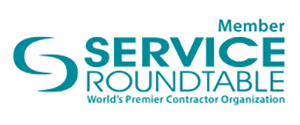Why More Southern California Insurance Companies Are Requiring Automatic Water Shutoff Valves
If you own a home in Southern California, there’s a growing chance your insurance provider may require you to install an automatic water shutoff valve. These devices are no longer considered high-tech luxuries they’re fast becoming a standard line of defense against costly water damage. In fact, many insurers now see them as essential, especially in homes located in high-risk areas or with aging plumbing systems.
What Is an Automatic Water Shutoff Valve?
An automatic water shutoff valve is a leak detection system that can turn off your home’s water supply the moment it senses abnormal flow or pressure. These devices typically rely on sensors placed on pipes or near appliances (like water heaters or washing machines). When something’s off, such as a slow leak under the slab or a burst pipe while you’re away, the valve closes to stop the water at the source.
Some models offer Wi-Fi connectivity, giving you mobile alerts and remote access through your smartphone. This level of control is especially useful for second homes, vacation properties, or just for extra peace of mind when you’re at work or traveling.
Real-World Example: The Cost of Delay
Consider a common Southern California scenario: a homeowner leaves for the weekend, unaware that a supply line under their kitchen sink has cracked. Over 48 hours, hundreds of gallons of water flood the cabinets and subflooring. By the time they return, they’re facing $20,000+ in repairs, flooring, drywall, mold remediation, and plumbing reconstruction.
According to the Insurance Information Institute, water damage and freezing ranked among the most frequent types of homeowners insurance claims, accounting for about 1.6% of insured homes annually, or roughly one in 60. Between 2018 and 2022, the average severity of these claims was almost $13,954 per incident. Over that same period, water-related damage made up nearly 28% of all property damage losses reported by insurers.
An automatic shutoff valve would have caught the pressure change or abnormal flow and shut the water off immediately, preventing most of that damage.
What Can Happen If a Leak Goes Unnoticed
When a leak slips under the radar, it can do more than waste water, it can cause serious damage to your home’s structure, safety, and indoor environment. Here’s what can happen when small leaks go undetected:
- Mold and Indoor Air Issues
Hidden moisture behind walls or beneath flooring can quickly lead to mold growth. This not only damages building materials but can also trigger respiratory problems and allergy symptoms, especially for those with asthma or compromised immune systems. - Damage to Your Home’s Framework
Persistent moisture can slowly break down wood, drywall, and subflooring. Over time, this weakens your home’s structural integrity, potentially leading to soft floors, warped beams, or even foundation concerns. - Flooring Destruction
Hardwood may expand and warp, carpet can absorb water and develop odors, and tile may crack or lift if the materials underneath are damaged by moisture. - Stains and Surface Damage
Leaks often leave behind brown or yellow stains on ceilings and walls. These marks are more than cosmetic, they’re a sign that water has seeped into your home’s interior, which could signal deeper problems inside. - Unexplained Spikes in Water Bills
A steady, slow leak can waste thousands of gallons of water over time. You may not notice it right away, but the impact often shows up in a higher-than-normal utility bill. - Electrical Dangers
When water comes into contact with outlets, wires, or electrical panels, the risk of electrical shorts or even fires increases significantly, making a simple leak a serious safety concern.
Just one broken pipe can flood your home with hundreds of gallons of water in a matter of minutes. That’s not just a mess, it’s a major repair bill and a major waste of a precious resource. In California, where water conservation is key, stopping leaks early helps both your home and the environment.
Why Are Insurance Companies Requiring These Devices?
Water damage is one of the leading causes of homeowner claims in California. Between seismic activity, old pipes, and high water usage from landscaping or pool systems, Southern California homes face a unique level of plumbing strain.
Insurers are reacting by tightening risk standards. In some cases, insurance carriers will deny or non-renew coverage if a home doesn’t have water damage prevention systems in place. Others offer discounts or incentives for installing automatic shutoff valves. These policies are especially common for:
- Homes over 20 years old
- High-value properties
- Short-term rental properties
- Homes in wildfire- or earthquake-prone zones, where emergency response may be delayed
Installing an automatic water shutoff valve can show your insurer that you’re proactive about protecting your home.
How Do Shutoff Valves Relate to Pressure Regulator Valves?
While the two systems serve different purposes, they work together to protect your plumbing.
- A Pressure Regulator Valve (PRV) ensures that the incoming water pressure from your municipal supply is kept within a safe range (typically 55–75 PSI). Without it, your plumbing is more vulnerable to stress, leaks, and damage.
- An Automatic Shutoff Valve monitors real-time water usage and detects abnormalities in flow or pressure that indicate a leak, then stops the water from flowing further.
Excessively high water pressure, anything above 80 PSI, can silently wear down pipes, fixtures, and appliances. A PRV is the first line of defense for keeping water pressure at a safe and manageable level.
Bonus Features: Integration with Smart Home Systems
Many modern automatic shutoff valves are compatible with smart home platforms like Alexa, Google Home, or proprietary apps. That means you can:
- Get push notifications if there’s a leak or flow anomaly
- Remotely shut off the water if something seems off
- Review usage data to monitor for hidden plumbing issues
The Environmental Protection Agency (EPA) encourages homeowners to use smart water-saving devices, including leak detection systems, to prevent waste and water damage.
This kind of transparency is especially valuable for rental property owners or homeowners managing multiple properties.
Long-Term Benefits for Homeowners
Adding an automatic shutoff valve to your home is one of the smartest ways to proactively protect your property and avoid expensive, disruptive damage. Here’s what you gain:
- Prevent Costly Water Damage: Shutoff systems detect hidden leaks and burst pipes early, stopping the flow before flooding occurs. This helps you avoid thousands in repairs to flooring, drywall, cabinetry, and personal belongings.
- Stop Mold and Structural Issues Before They Start: Slow leaks often go unnoticed until mold or wood rot takes hold. A shutoff valve helps stop moisture damage before it spreads.
- Lower Insurance Costs: Some homeowners insurance providers offer premium reductions, deductible waivers, or added coverage limits for homes with certified leak detection systems.
- Avoid Unexpected Utility Bills: By catching running toilets, leaking irrigation lines, or malfunctioning water heaters, these systems helps you conserve water and avoid spikes in your bill.
- Increase Property Value: Buyers are increasingly looking for smart home features and preventive systems, especially in California’s competitive real estate market. An automatic shutoff valve is a major plus for resale.
- Comply with Local Codes and Future Mandates: While not yet required everywhere, shutoff systems are being written into more building codes, particularly for remodels, short-term rentals, and new construction in high-risk areas.
- Peace of Mind While You’re Away: Whether you’re on vacation, out of town for work, or facing an emergency evacuation, you’ll know your water system is being monitored 24/7.
Common Questions from Southern California Homeowners
Do I still need a PRV if I install a shutoff valve?
Yes. A pressure regulator valve handles excess water pressure from the street supply. A shutoff valve reacts to abnormal usage. Both serve different, essential functions.
Will this qualify me for an insurance discount?
It depends on your provider and policy. Some insurers in California offer 5%–10% discounts for certified leak detection systems. Always check with your agent.
How much does installation cost?
Installation costs for automatic water shutoff valves can vary depending on your home’s plumbing layout and the type of system you choose. Most professionally installed systems start around $1,500, with advanced smart valves ranging upward of $2,500 for more complex installations.
These systems require power, Wi-Fi connectivity, and mobile app setup, all of which are included as part of a full-service installation. At Canyon Hills Plumbing, we provide upfront pricing and can assess your home’s water main to recommend the best solution for your needs.
What brands do you recommend?
Reliable options include Flo by Moen, Phyn Plus, and LeakSmart. We’ll help you choose the right device based on your home’s plumbing and your tech preferences.
Protect Your Home with Canyon Hills Plumbing
Automatic water shutoff valves do more than satisfy insurance requirements, they help safeguard your home, prevent expensive damage, and give you peace of mind every day.
If you’re ready to install a system or want to explore your options, Canyon Hills Plumbing offers professional installation, expert guidance, and local experience you can trust.
Contact us today for a free in person consultation and quote. We proudly serve Murrieta, Menifee, Lake Elsinore, Temecula, and surrounding areas.
Limited Time Offer: No Payments, No Interest for 6 Months*
Call (888) 970-7550 for details and to schedule Your FREE In-person estimate*.
Ask Us About Our Senior discounts, Veteran discounts, Military discounts, Law Enforcement discounts, First responder discounts, and Teacher discounts. *Some restrictions apply and cannot be combined with any other offers or discounts.
Trusted Professionals
Licensed & Insured Plumbers
CA Lic.#1010329, C-36 Plumbing Contractor and C-42 Sanitation Contractor.
✅ For your trust and safety you can verify our CA Contractor license & classifications HERE








